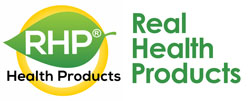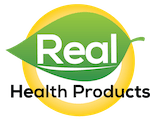Why is Vitamin B12 important?
Vitamin B12 is necessary for the formation of proteins and red blood cells, and for the functioning of the nervous system. It is vitally important in maintaining the health of the outer sheathing (protective covering, also called the myelin sheath) that surrounds your nerve cells.
Vitamin B12 also participates in a variety of cellular reactions to release energy from carbohydrates, fats and proteins. It’s one of eight B vitamins that help the body convert the food you eat into glucose, which gives you energy.
Vitamin B12 is naturally found in animal products, including fish, meat, poultry, eggs, milk, and milk products. Most diets do not contain sufficient B12, and so, over the years, the amount of B-12 diminishes in the body. Strict vegetarians and vegans are at a higher risk for developing a B12 deficiency if they don’t eat grains that have been fortified with the vitamin or take a vitamin supplement.
Absorption of vitamin B12 from food occurs in a unique way. Vitamin B12 is released from food by digestion, especially by stomach acid. The vitamin B12 binds with a special protein that is secreted by the mucous membrane of the stomach called the “intrinsic factor.”
The resulting complex travels to the last section of the small intestine, called the ileum. Ileum cells then absorb vitamin B12. Absorption is very poor unless the “intrinsic factor” is present.
As the body ages it often produces lower quantities of both stomach acid and the “intrinsic factor,” thus reducing the amount of B12 that can be absorbed from the diet.
The vitamins and minerals in food are constantly being used to create and support the life processes in the body and must be replenished from time to time.
Boosting your B12
Because the body’s reserves of B12 continues to drop as the body ages, doctors will often recommend B12 shots. However the more common choices available are to supplement with pills, capsules or even drinks. Those options generally contain a particular form of B12 called cyanocobalamin, which is not usable by the body.
When ingested and processed by the body, a very small percentage of cyanocobalamin is converted into methylcobalamin and stored in the liver. As the body ages, it becomes less and less able to convert cyanocobalamin to methylcobalamin. That is why we suggest supplementing with methycobalomin for best results.
There is no upper limit to the amount of B12 that you can safely take without any side effects. The RHP Nerve Support Formula contains the methylcobalamin and other B vitamins you need to nutritionally support your body’s nervous system.
You can order the RHP Nerve Support Formula here: RHP Nerve Support Formula
Research:
Effects of methylcobalamin on nerves
Clinical usefulness of intrathecal injection of methylcobalamin in patients


